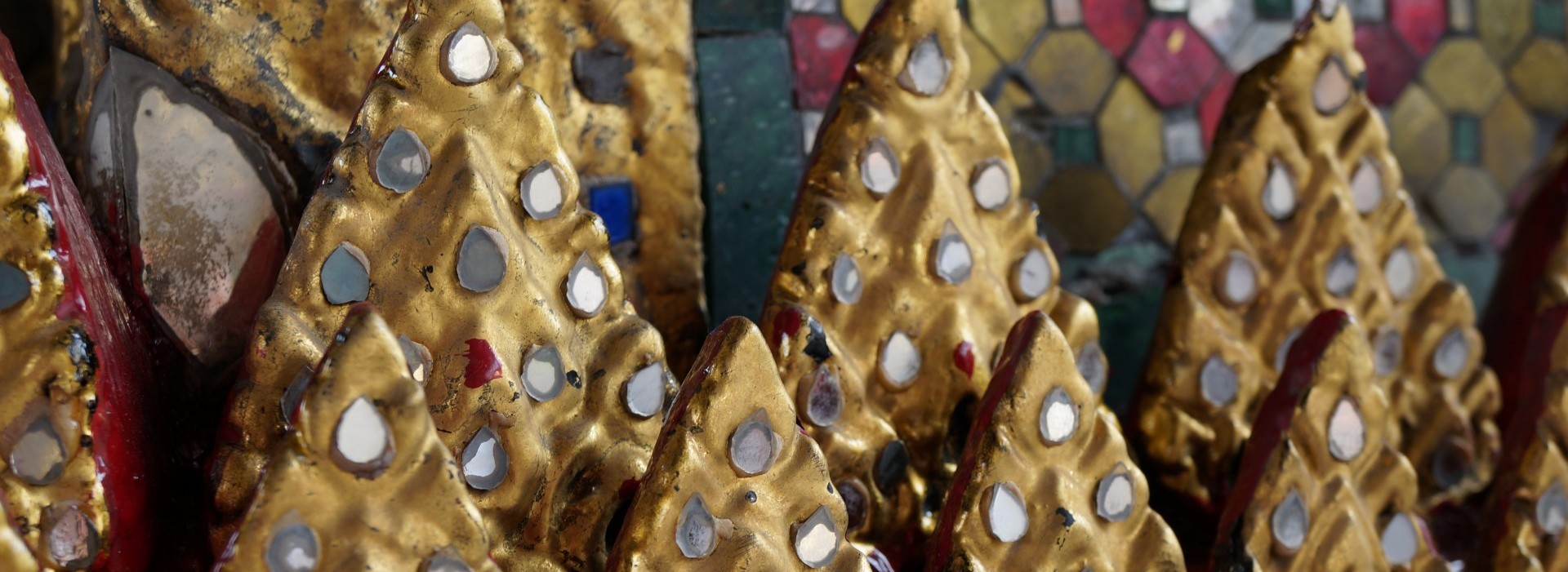Course Period: June 5 – 30, 2017
Orientation: June 1, 2017
Course Structure:
Siamese Summer courses are structured as a 4-day week with classes scheduled between Monday and Thursday.
Students will have two hours of Thai language instruction (one in the morning from 9am to 10am and another one after lunch between 1pm and 2pm) every class day (amounting to 8 hours per week and 32 class hours in total).
Introduction to Thai Studies will be provided on Mondays and Wednesdays between 10am and 12noon (2 lectures/ 4 hours per week amounting to 16 class hours in total).
Thai Religion will be provided on Tuesdays and Thursdays between 10am and 12noon (2 lectures/ 4 hours per week amounting to 16 class hours in total).
There will be one guest lecture per week on Wednesdays between 2pm and 4pm.
Excursions in Bangkok will take place in the afternoon of class days. The two excursions to locations outside of Bangkok (Ayutthaya and Nakhon Pathom) will be scheduled on Fridays.
Course Detail:
- Beginners/ Intermediate Thai (8 hours/week; 32 in-class hours in total)
- Introduction to Thai Studies
Introduction to Thai Studies provides a comprehensive overview on major issues in the field of Thai Studies. The course is designed to present Thai Studies from various academic perspectives and through a wide range of methodologies, including history, anthropology, philosophy, political science, economics, literature, and cultural studies. Introduction to Thai Studies attempts to address all your basic curiosity concerning Thailand in the global media—from exotic culture, to intriguing history, all the way up to the mesmerizing political situation of the present day.Lectures:- The Amazing Thailand of Contradictions
- Feudalism and Trade: Foundations of the Pre-Modern Siamese State
- Travelers, Traders, and Migrants in the Cosmopolitan Heart of the Crossroads of Civilizations
- Religion, Literature and the Arts: Discovering the Cultural Essence of a Multifaceted Society
- Shifting Paradigms: Siam in the Era of Modernization
- Evolution of Modern Thai Politics
- The Political Economy of Thailand in the Age of Globalization
- All the Way Up to the Present: Democracy and Human Rights under Military Rule
- Thai Religion
Thai Religion provides a comprehensive overview of the wide variety of religious faiths and beliefs that constitute the spiritual foundation of the richly diverse Thai culture and society. The course investigates the dominant influence of Theravada Buddhism as the religion of the majority but also demonstrate how Buddhist faith and practice in Thailand is richly diverse and is often influenced by the beliefs and practices of other faiths. Thai Religion invests a substantial amount of class time to studying the importance and influence of other faiths and beliefs—including Animism, Hinduism, Islam, Christianity, Daoism, Confucianism, and various other folk beliefs and practices—as well as investigate the advantages, potentials, and problems of Thailand as a religiously diverse society.Lectures:- Introduction to Thai Buddhism – The Politics of the Religion of the Majority
- Thai Buddhist Narratives: Legends, Literature, and Art
- Buddhist Meditation in Thailand
- Chinese Religions in Thailand: Mahayana Buddhism, Daoism, and Confucianism
- Indian Religions in Thailand: Sources of Old Inspirations and Invigorating Contemporary Practices
- Popular Religious Practices in Modern Thai Society
- Islam in Thailand: History, Tradition, and Conflict of the Largest Religious Minority
- The Remaining 1%: Christianity and the Rest
Excursions – In and Around Bangkok
- The Old Capital of Ayutthaya
- Nakhon Pathom: The Ancient Bastion of Buddhism in Siam
- The Grand Palace, Museum Siam, Wat Pho and Massage Class
- Vimanmek Throne Hall (Golden Teak Mansion) and Cooking Class
- Bangkok Chinatown – Museums, Temples, Street food, and the Dark Side
